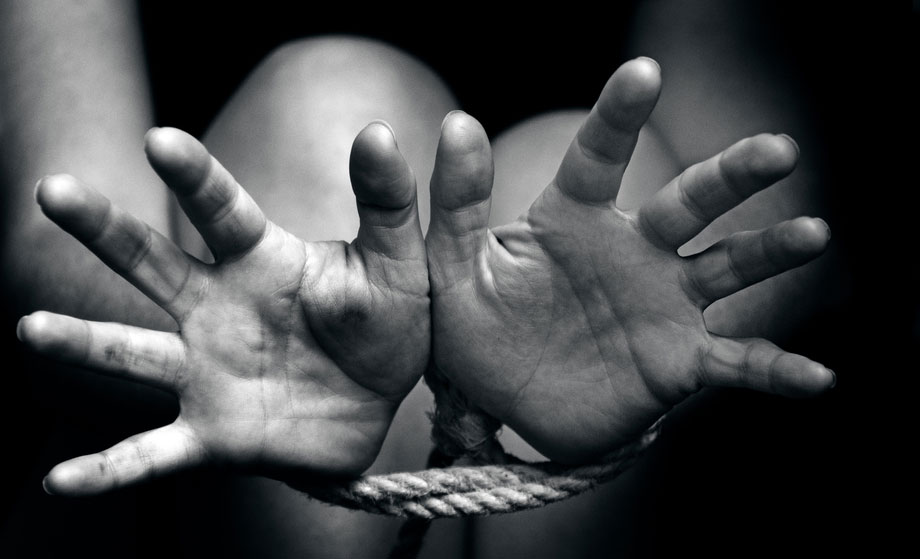Migrants not aware of their rights have been falling prey to trafficking and exploitation, and coordination among stakeholders is vital to address the issue holistically, an expert on the subject said in light of cases of suspected human trafficking recently reported from Gujarat.
It will be appropriate to have a separate investigation agency for dealing with human trafficking offences, former Indian Police Service Officer P M Nair, who was the project director of a study conducted by the Tata Institute of Social Sciences (TISS) on human trafficking in vulnerable districts of India, told PTI.
Initiatives like setting up anti-human trafficking clubs in colleges and at the panchayat level to prevent such offences at the grassroot level are helpful, said Nair, who is also associated with the National Resource Centre on Human Trafficking at the Rashtriya Raksha University in Gujarat's capital Gandhinagar.
The TISS study, published in 2019, explored the aspect of human trafficking in the country from the perspective of migration, how migration can lead to trafficking, or rather how trafficking of people takes place under the garb of migration, he said.
It also highlighted how the use of technology made trafficking "a faceless and spaceless crime" and revealed every state in the country was impacted by human trafficking.
What separates migration from trafficking is the way restrictions are put on the basic rights of the trafficked person through curtailment of communication and freedom of movement, the study observed.
It also noted the increasing use of social networking applications like WhatsApp, Instagram, Signal, Telegram, Hike, JustDial, Paytm and Facebook to trap victims for sex trafficking.
The Gujarat Police's Anti-Human Trafficking Cell recently launched an investigation into the reported death of a man hailing from Gandhinagar following his unsuccessful attempt to cross the US-Mexico border wall, also referred to as the 'Trump Wall'.
The state police are also probing the suspected role of a man in a case of human trafficking of a family of four from Gandhinagar district's Dingucha village who froze to death in January last year while trying to illegally cross over to the United States from Canada.
Nair said while the response system against human trafficking has improved, coordination among the government departments and among non-governmental organisations (NGOs) working in the field remains uneven.
"Unless we have all the stakeholders coming together, working together and in coordination, this issue of human trafficking cannot be addressed holistically. Prevention, protection and prosecution -- all will have to come together," said Nair, a former chair professor at TISS who also served the National Human Rights Commission (NHRC) as its nodal officer on anti-human trafficking.
The TISS study showed while there is nothing wrong with migration, "there are many migrants whose rights are being exploited and they are being deprived because they don't know their rights or how to enforce them," he said.
The study also revealed that every state in the country was impacted by human trafficking.
"It may be a source state, transit state or a destination state. The research also shows that states cannot be classified in watertight compartments because they could be all three, and there are many such states in India," Nair said.
While the Census 2011 identified 37 per cent of the population as migrants, the TISS study estimated it to be nearly 13 per cent.
"An emerging form of trafficking for commercial sexual exploitation was identified as cyber-sex trafficking where cyberspace and social media are being accessed to treat female bodies as sources of voyeuristic and commercial gains," the study said.
Nair said coordination among government departments and among NGOs working in the field required improvement to address the issue holistically.
"Some NGOs are good for rescue, some for counselling, some for rehabilitation and some for networking. If all NGOs come and work together, the strength of each NGO can be put together for a common cause, but even that is not happening because of the paucity of vision," he said.
Nair also said there was a need for a specialised investigation agency against human trafficking.
"Considering the requirements of specialisation, it will be appropriate to have a separate probe agency for dealing with human trafficking crimes. Setting up a specialised vertical in the National Investigation Agency (NIA) or the Central Bureau of Investigation (CBI) will also fulfil the requirement," he said.
The TISS study called for a comprehensive plan of action by different government ministries -- home, railways, women and child development, labour and employment, etc. -- and a joint task force "to understand the modus operandi and routes used to traffic women migrating for work and to develop a comprehensive strategy for action." "Since trafficking is becoming a faceless and spaceless crime, the ‘masterminds’ of these networks often have no contact with lower rung agents in the network hierarchy. Instructions are communicated through phone or the internet. Only the effective use of technology can combat trafficking, which is facilitated by technology," it said.
Initiatives like setting up anti-human trafficking clubs in colleges and at the panchayat level to prevent such offences at the grassroot level are helpful, Nair said.
There are more than 500 colleges in the country with such clubs, and "are making a tremendous impact," he added.
Except for the headline, this story has not been edited by The Telegraph Online staff and has been published from a syndicated feed.











